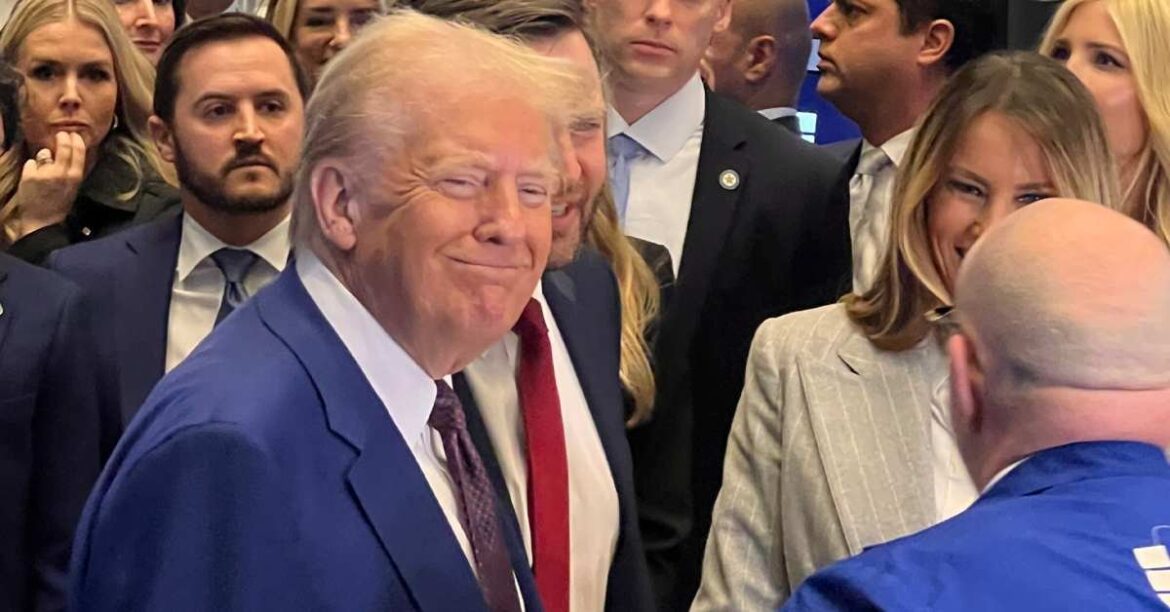Former U.S. President Donald Trump has made headlines once again by halting over $300 billion in green infrastructure funding. This decision has sparked widespread criticism and could significantly hinder progress on renewable energy projects and climate action in the U.S. at a time when the world is grappling with climate change challenges.
The $300 billion in funding was designated for projects focusing on green energy development, sustainable infrastructure, and environmental innovation. These included renewable energy installations, smart grid systems, energy-efficient transportation, and research into cutting-edge clean technologies. Here’s a detailed breakdown of the consequences:
The freeze has left solar power plants, wind farms, and other renewable energy initiatives in limbo. States like California, Texas, and Florida—leaders in renewable energy adoption—are particularly affected. Experts predict a halt in development could delay clean energy adoption by years, making it harder for the U.S. to meet its climate goals.
Several major clean energy companies and startups have expressed concern over their ability to maintain operations without the anticipated funding. The move also jeopardizes the U.S.’s competitive edge in the global clean energy market, which has been rapidly expanding with investments from Europe and Asia.
Green infrastructure projects have been a vital source of job creation in recent years. Industries tied to solar, wind, and battery manufacturing have seen explosive growth, offering high-paying, stable jobs in a rapidly evolving sector.
Estimates indicate that the funding halt could put over 500,000 jobs at risk, ranging from engineers and construction workers to researchers and policymakers. Small businesses that provide services to renewable energy projects, such as logistics and manufacturing, are bracing for potential revenue losses.
This decision sends shockwaves through international environmental diplomacy. The U.S. has historically played a central role in climate agreements, such as the Paris Climate Accord. By pausing these investments, the country risks losing credibility as a global leader in sustainability.
World leaders, including representatives from the EU and UN, have criticized the decision, warning that it could embolden other nations to scale back their commitments to fighting climate change.
Domestically, Trump’s move has deepened the political divide over environmental policy. Democratic lawmakers and climate advocates accuse him of prioritizing fossil fuels over the planet’s future.
Republican supporters argue that the funds should be redirected to address pressing economic challenges, such as inflation and job security in traditional energy industries like coal and oil. This clash underscores the broader ideological divide over balancing environmental sustainability with short-term economic priorities.
While countries like China, Germany, and India are investing heavily in green technology, the U.S. now risks being sidelined in the race to lead the global energy transition. Analysts warn that a delay in adopting sustainable practices could have long-term consequences, from increased carbon emissions to reduced innovation capacity.
Moreover, businesses reliant on predictable government policy for green investment are likely to shift focus to markets with more stable and supportive environments. This could result in a brain drain of talent and innovation to other countries, weakening America’s leadership in technology and entrepreneurship.
The halted funding highlights the critical need for bipartisan support on climate policies. Business leaders and environmental advocates are calling for a robust national strategy to secure the future of green jobs and sustainable energy.
For entrepreneurs and innovators, this serves as a wake-up call to diversify their funding sources and explore private investment opportunities. The role of the private sector will become increasingly crucial in filling the gap left by government decisions.
Whether you’re a business leader, an entrepreneur, or a concerned citizen, this news affects us all. The green economy is not just about fighting climate change—it’s about shaping the industries and opportunities of the future. Staying informed is the first step toward understanding and addressing these challenges.
Get the latest updates on global innovation, entrepreneurship, and climate action at Innovation Times. Sign up today to receive expert insights, breaking news, and exclusive reports on the trends shaping our world. Join a community of visionaries dedicated to building a sustainable and prosperous future.



